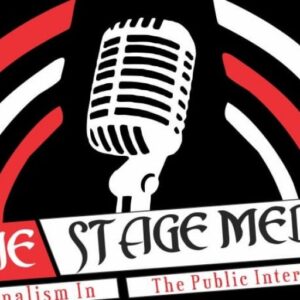At the eleventh GlobalFact meeting—a worldwide gathering of fact-checking organizations—held in Sarajevo, Bosnia and Herzegovina, members of the International Fact-Checking Network (IFCN) have openly declared their commitment to access to information and freedom of expression for all people across international territories.
In the Sarajevo Statement, the global group clamored for unhindered access to, reception of, and optimum use of information and ideas, emphasizing the core principles of the fact-checking foundation.
“All people have the right to seek, receive, and impart information and ideas. Fact-checking is deeply rooted in these principles. Fact-checking requires the right and ability to find sources, read widely, and interview experts who are free to speak candidly — all as part of a rigorous methodology and process. This is the foundation on which all true fact-checking is built,” part of the statement reads.
The fact-checking group, comprising 130 fact-checking organizations across 80 countries, highlighted its focus on providing evidence-backed information to clarify assertions and public statements that are false, misleading, or put out of context. It further argues that the initiative of fact-checking is not to erase public posts and assertions but to make them useful during public debate, backed up with evidence, that only makes facts presented in such debates accurate.
Perceived censorship and consequent attacks
The statement is also a critical reaction to the persistent attack on fact-checkers, who have, over the years, been viewed as online censors and constantly abused verbally, doxed, victimized, threatened legally and politically, and even assaulted physically.
However, the IFCN hoped to correct the notion that fact-checking is an instrument of censorship but rather an initiative that only seeks to give out information for clarity. In a separate report, the IFCN explained that fact-checking organizations have been made to bear the brunt of such hostilities.
Among notable incidents is the Georgian parliament labeling civil society and media organizations as “foreign agents.” Myth Detector and FactCheck Georgia have constantly been targeted, with the former’s offices vandalized. Meanwhile, Kate Starbird, a leading researcher at the University of Washington in the United States, has received death threats amidst political and legal attacks on the misinformation research community.
While in Brazil, fact-checking journalists at Aos Fatos were sued due to a 2020 report on online misinformation. The Philippines-based news agency Rappler has suffered constant attacks despite the government’s unsuccessful attempts to shut down its operations.
Also, in 2020, PolitiFact, Science Feedback, and the Poynter Institute were all sued in federal court by Robert Kennedy Jr.’s Children’s Health Defense for fact-checking COVID-19 vaccine misinformation.
Way forward
Arguments have continued to linger about how media and online platforms manage public expression, how tech companies moderate public posts, and society’s behavior toward harmful speech. Although it is only right that harmful expressions and posts should be quickly erased, false claims should not be removed for their lack of integrity. Still, appropriate contexts should be given to educate society.
This also spotlights how untrue certain pieces of information are and the essence of fact-checking processes. With the influx of artificial intelligence in contemporary times, it is only necessary that fact-checking organizations are allowed to step in to sanitize the information space.
Moreover, because both the public and government need accurate information for their decisions in matters relating to economics, health, foreign policies, etc., fact-checking initiatives need to be embraced rather than opposed to safeguarding the information ecosystem.
